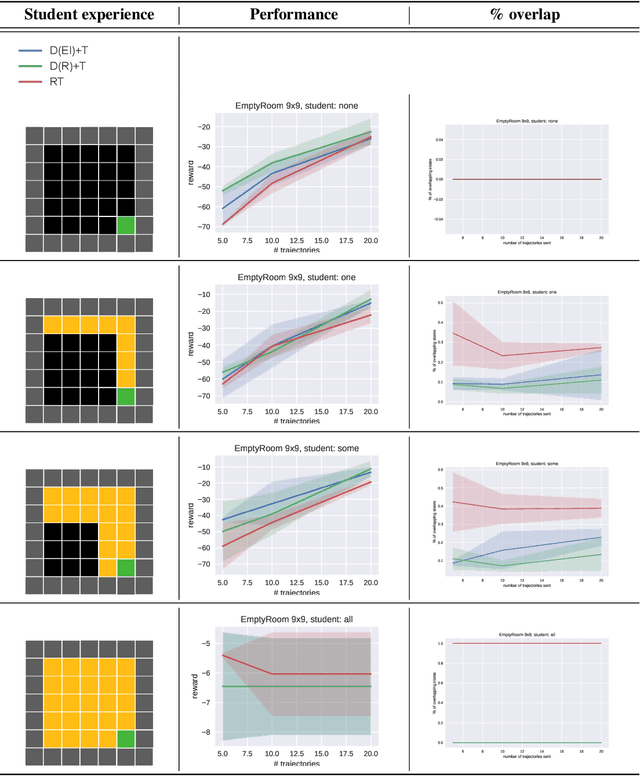Know Thy Student: Interactive Learning with Gaussian Processes
Paper and Code
Apr 26, 2022



Learning often involves interaction between multiple agents. Human teacher-student settings best illustrate how interactions result in efficient knowledge passing where the teacher constructs a curriculum based on their students' abilities. Prior work in machine teaching studies how the teacher should construct optimal teaching datasets assuming the teacher knows everything about the student. However, in the real world, the teacher doesn't have complete information about the student. The teacher must interact and diagnose the student, before teaching. Our work proposes a simple diagnosis algorithm which uses Gaussian processes for inferring student-related information, before constructing a teaching dataset. We apply this to two settings. One is where the student learns from scratch and the teacher must figure out the student's learning algorithm parameters, eg. the regularization parameters in ridge regression or support vector machines. Two is where the student has partially explored the environment and the teacher must figure out the important areas the student has not explored; we study this in the offline reinforcement learning setting where the teacher must provide demonstrations to the student and avoid sending redundant trajectories. Our experiments highlight the importance of diagosing before teaching and demonstrate how students can learn more efficiently with the help of an interactive teacher. We conclude by outlining where diagnosing combined with teaching would be more desirable than passive learning.
 Add to Chrome
Add to Chrome Add to Firefox
Add to Firefox Add to Edge
Add to Edge